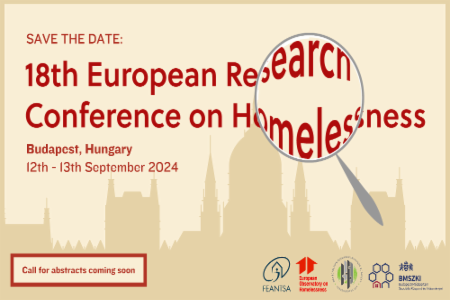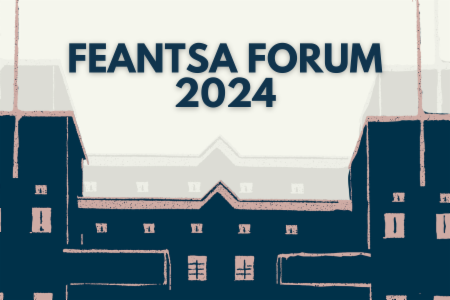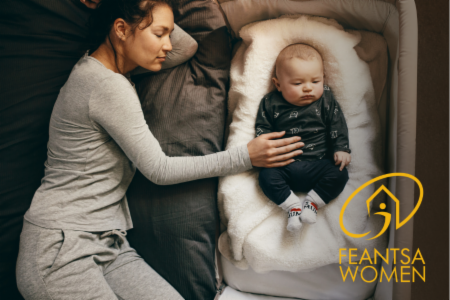The Council of the European Union Recommendation for Roma Equality, Inclusion and Participation could represent a step further in ending homelessness among Roma communities
FEANTSA Reacts
Read and download PDF here
On the 12 of March, the Council of the European Union adopted the Recommendation for Roma Equality, Inclusion and Participation which will contribute to strengthening the commitment across Member States to achieving inclusion of Roma communities in important areas of education, employment, health and housing.
The EU Council Recommendation expands previous objectives[1] to include: fighting online and offline discrimination, combatting multiple and structural discrimination against Roma (focusing on women, children, LGBTI persons, elderly Roma, Roma with disabilities, stateless Roma and EU mobile Roma[2]), and promoting multi-cultural awareness-raising activities and campaigns in schools.
FEANTSA welcomes the Recommendation which contains measures to support Roma facing homelessness across the EU and for including these persons in mainstream support services. The EU Council also makes references in the Recommendation to Roma who exercise their freedom of movement right within the EU to take up seasonal or short-term employment and who end up in vulnerable situations, calling for mechanisms of support in these situations.
We strongly believe that the support measures for Roma mobile EU citizens are an important step in tackling the additional challenges that are linked to the free movement legal framework of the EU and its implementation at national level. These obstacles, which can be related to registration formalities, the obtention and the retention of the worker status, residence exceeding three months for job seekers and self-sufficient people, access to social benefits and discrimination on the labour and housing market can result in mobile EU citizens, Roma included, being pushed into destitution and accounting for a significant proportion of the homeless population. Despite these circumstances, Roma mobile EU citizens have not been mentioned in the national strategies for Roma inclusion so far.
The Council Recommendation addresses some of the issues mentioned above under the “Horizontal objectives: equality, inclusion and participation”, recommending that Roma mobile EU citizens are protected when they travel abroad to establish themselves in another MS or to engage in temporary work opportunities. The Council recommends that MS fight 2(c) multiple and structural discrimination against Roma and, in particular, against Roma women, young Roma, Roma children, LGBTI Roma, elderly Roma, Roma with disabilities, stateless Roma and EU mobile and develop 3(c) measures to combine income support with activation measures to promote labour market participation and with employment support, particularly for Roma women and EU mobile Roma and to provide information on the existing legal eligibility requirements to take up benefits accompanied by activation and enabling services.
Furthermore, in the “Sectoral objectives,” access to quality healthcare and social services are promoted for EU mobile Roma (point 9 a (iv)). Under Access to adequate desegregated housing and essential services, the Council of the EU has approved point 10 (f) measures to provide social support and access to mainstream services for homeless Roma people. It is also recommended that point 37: Member States should address funding needs of the local level, including those of urban areas, where relevant, in order to support EU mobile Roma, including by providing language training, quality early childhood education and care, schooling, public employment services, social workers, mediators, etc.
At FEANTSA, we commend the references to the issue of free movement in the newly adopted Recommendation and we consider the implementation of the measures formulated by the Council crucial to improve living conditions for Roma when they travel across MS and for preventing experiences of inadequate housing, homelessness, or discrimination and further exclusion from society.
FEANTSA particularly welcomes point 10 (f): measures to provide social support and access to mainstream services for homeless Roma people. Member States where Roma experience homelessness, especially when exercising their free movement right (e.g., Sweden, Norway, Germany, Denmark), must make use of this provision. We therefore urge Member States to include in their national strategies, to be submitted to the EC in September this year, measures that will allow for social support and access to mainstream services for homeless Roma people, as recommended by the Council of EU. It is time that no Roma finds themselves homeless, particularly when travelling to another MS to look for income opportunities that they cannot access in their own country of residence.
FEANTSA reiterates our calls on the EC and MS to a) ensure access to adequate and affordable housing for Roma across the EU, including for Roma mobile EU citizens who travel alone or accompanied by family members, b) include anti-discrimination criteria in the national strategies to prevent and combat discrimination against Roma on the housing market and c) allocate specific funding for the measures developed in the national frameworks to increase access to proper housing for Roma.[3]
[1] Council of the European Union Recommendation for Roma Equality, Inclusion and Participation replaces the December 2013 Council recommendation on effective Roma integration measures.
[2] EU citizens of Roma ethnicity exercising their right to free movement within the European Union.
[3] FEANTSA statement: The Housing Situation for Roma in the EU Remains Difficult https://www.feantsa.org/en/news/2020/10/26/statement-eu-roma-strategy?bcParent=27





